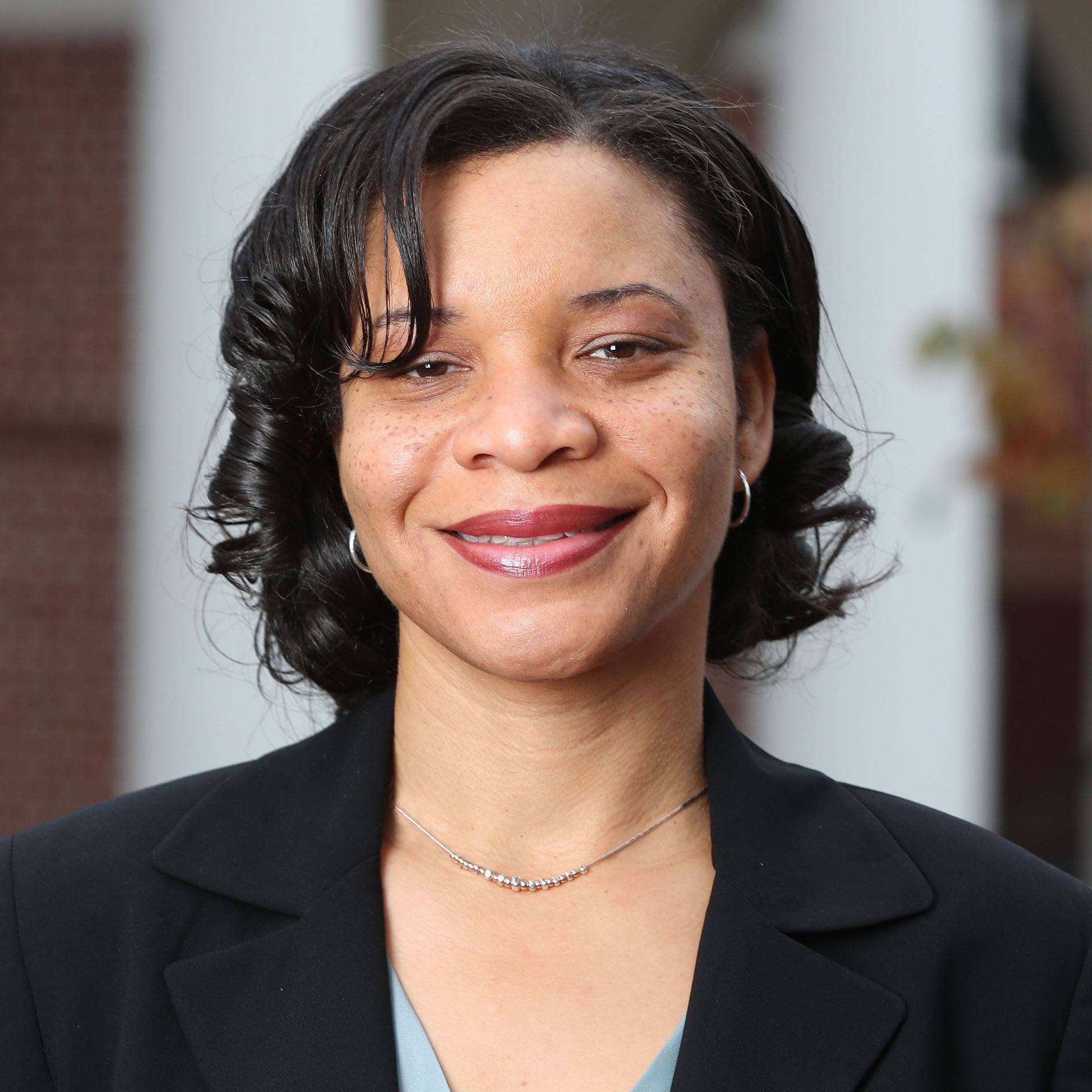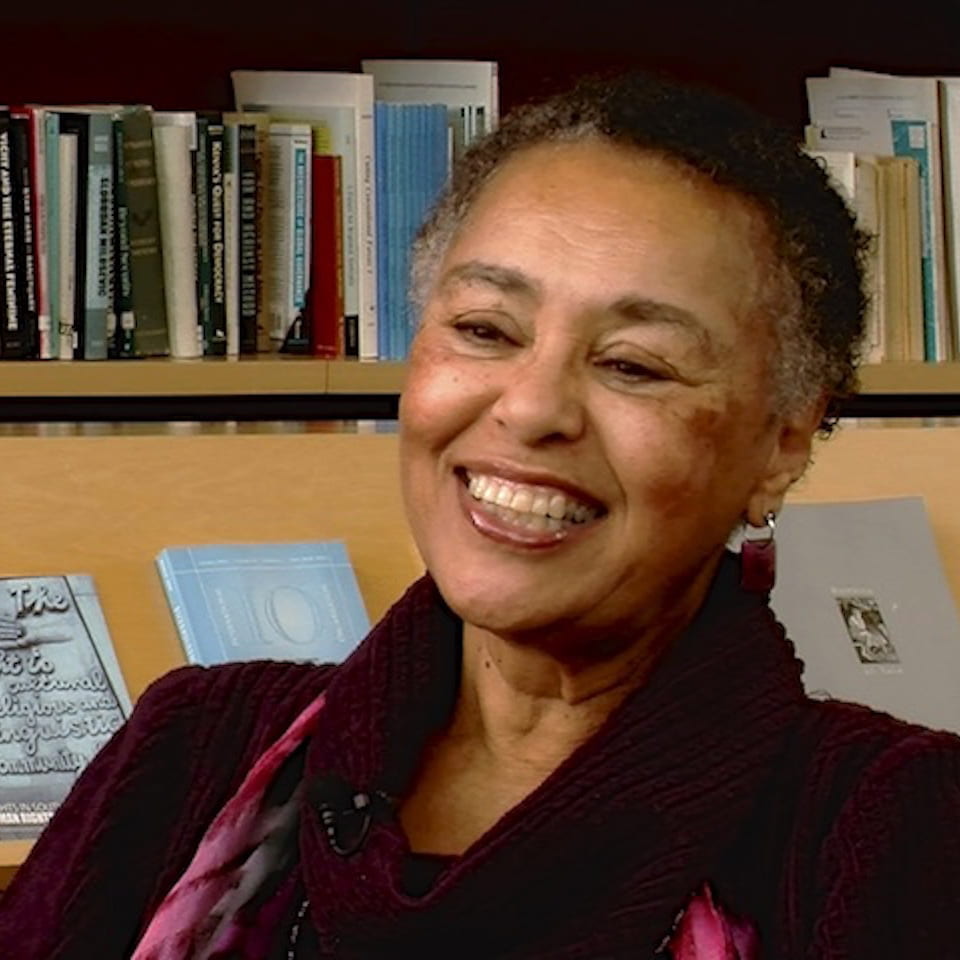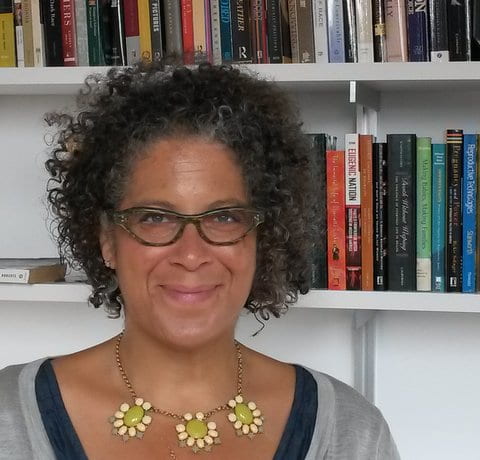An Ohio State University Series, 2019-2022
In late August 1619 “twenty and odd” Angolans were brought from the West Indies to the Chesapeake Bay on the ship White Lion. Some of these individuals were sold into slavery at Jamestown. 2019 marked the quadricentennial of this arrival of Africans in British North America and the start of a trans-Atlantic slave trade that would continue (legally and illegally) until the Civil War, with profound legacies running to the present.
During this, the second year of our lecture series, The Ohio State University will move from last year’s focus on the slavery era a year-long program focusing on the legacies of slavery in American and African American life from the post-emancipation period (after the Civil War) to the present time. This year, the series will feature invited lectures by eminent scholars of the Jim Crow Era, the Modern Civil Rights Movement/Era, and the contemporary issues that continue to reflect a need to address the legacies of centuries of legal, race-based enslavement, segregation and discrimination. We will also offer film screenings, seminars, and Slavery Roundtables. The departments urge students to participate in these events and to take courses dedicated to the history of slavery.
The 2021-2022 and 2020-2021 programs are made possible by a major grant from the Ohio State Energy Partners.
Co-Sponsored by:
Department of History
Department of African and African American Studies
Center for Historical Research
Office of Diversity and Inclusion
Ohio Early American Seminar
Organizing Committee:
Co-Chairs: Stephanie Shaw, Hasan Kwame Jeffries, John Brooke
Members: John Brooke, Joan Cashin, Alice Conklin, Simone Drake, Joan Flores-Villalobos, James Genova, Eric Herschthal, Hasan Jeffries, Ousman Kobo, Ahmad Sikainga, Adam Thomas
2021-2022 Program Events:
Friday, October 8, 2021
 Lecture: “Place, Race, and Chronic Disease: ‘Inverting the Lens’ to Address the Root of Health Inequities,” Brian Smedley
Lecture: “Place, Race, and Chronic Disease: ‘Inverting the Lens’ to Address the Root of Health Inequities,” Brian Smedley
Director of the American Psychological Association’s Health Disparities Office and Chief of Psychology in the Public Interest
Video of this talk is available here.
Listen to the podcast version of this talk on Soundcloud or Anchor.fm.
Dr. Smedley completed his A.B. Degree at UCLA in Clinical Psychology and his Ph. D. in Psychology and Social Relations at Harvard University. His work centers around the issues of health care equity and the ways in which Psychology can help us to resolve some of the most deadly public health and social welfare issues we face today. He is a co-founder of the National Collaboration for Health Equity and has served as Vice President of the Joint Center for Political and Economic Studies’ Health Policy Institute.
Friday, November 5, 2021
 4:30-6:00PM – Live Streamed via Zoom
4:30-6:00PM – Live Streamed via Zoom
Lecture: “Monumental Bodies – How Blackness Tells the American Story,” Caroline Randall Williams,
Writer-in-residence, Department of Medicine, Health, and Society, Vanderbilt University,
Video of this talk is available for a limited time here.
Caroline Randall Williams is a poet, a writer of fiction, co-author of a cookbook that is far more than a cookbook, a sought-after public speaker and commentator, a social justice activist, an essayist, and more. Much of her work looks at black bodies in ways that go far beyond diagnoses. Her recent, remarkable NYT essay on black bodies as Confederate Monuments (6/26/20 reminded readers, during a particularly contentious period of local and national decision making, to think bigger, deeper thoughts. Her first book of poetry, Lucy Negro, Redux thoroughly casts William Shakespeare’s “Dark Lady” (in sonnets 127-154) in ways that take us from late-Elizabethan England to right here, right now. Williams’s work appears in highly influential scholarly journals including The Iowa Review and The Massachusetts Review as well as numerous popular publications. Professor Williams received her undergraduate degree from Harvard University (English Studies) and her MFA from the University of Mississippi.
2020-2021 Program Events:
Several of our presenters have graciously approved recording and posting of their webinars. These links will be available here for roughly six months.
Friday, September 11, 2020
4:30-6:00PM
 Lecture: “Recaptive Shipmate Journeys through the Carceral Spaces of the U.S. Slave Trade Suppression”
Lecture: “Recaptive Shipmate Journeys through the Carceral Spaces of the U.S. Slave Trade Suppression”
Sharla Fett
Professor of History; Chair, Department of American Studies, Occidental College
Professor Fett’s most recent work focuses on the capture of slave ships off the American coast on the eve of the Civil War (in the early 1860s). She offers a new view of a heretofore unexamined “middle passage”—the return of these recaptured people to Africa—that included the detention and containment of “liberated”/recaptive Africans in spaces ranging from US jails and forts to ship holds to special “receptacles” used in Liberia. She will unravel the question about how slavery-based practices of detention continued into suppression procedures for “managing” large numbers of recaptive Africans and how recaptives sought to resist and reclaim those spatial constraints.
Friday, October 9, 2020
4:30-6:00PM

Lecture: “Slaves of the State: Black Women and Prison Labor in the Post-Civil War South”
Talitha L. LeFlouria
The Lisa Smith Discovery Associate Professor in African and African-American Studies, University of Virginia
LeFlouria is the author of Chained in Silence: Black Women and Convict Labor in the New South, winner of the Philip Taft Labor History Award from the Cornell University School of Industrial and Labor Relations & Labor and Working-Class History Association (2016), the Best First Book Prize from the Berkshire Conference on the History of Women, Genders, and Sexualities (2015); the Letitia Woods Brown Memorial Book Prize from the Association of Black Women Historians (2015), and others. LeFlouria’s talk will examine the rise of the convict labor system in the South after the Civil War and, especially, the role of Black female convict labor in the creation of Henry Grady’s much touted “New South” between the 1870s and the 1920s.
Friday, January 22, 2021
Video of this lecture is available here.
 Lecture: “An Interview: Eyes in the Prize as Documentary and Document”
Lecture: “An Interview: Eyes in the Prize as Documentary and Document”
Judy Richardson
SNCC Veteran, Documentary Filmmaker
Judy Richardson’s civil rights movement experiences have influenced her throughout her life. She was on SNCC staff from 1963-66, in SNCC’s Atlanta National Office and in Mississippi during 1964 Freedom Summer and Lowndes County, Alabama; then ran the office for Julian Bond’s successful first campaign for the Georgia House of Representatives. She co-founded Drum & Spear Bookstore (Washington, DC), once the largest African American bookstore in the country and was children’s editor of its publishing house. She was communications director for the United Church of Christ Commission for Racial Justice.
Her film work includes numerous documentaries, among them: the 14-hour PBS series Eyes on the Prize (for which she also served as education director); PBS’ Malcolm X: Make It Plain and Scarred Justice: The Orangeburg Massacre 1968; History Channel documentaries on slavery, and films for the National Park Service’s visitor centers, including their “Little Rock 9” (AK) and Selma (AL) sites. With 5 other SNCC women, she co-edited Hands on the Freedom Plow: Personal Accounts by Women in SNCC, which includes the memoirs of 52 SNCC women. She is on the SNCC Legacy Project board and the editorial board of the SNCC/Duke University website: SNCCDigital.org.
She lectures nationally about the Movement, its history and values, and this year she will again co-direct an NEH 3-week teacher institute. She was a Distinguished Visiting Professor at Brown University and received an honorary doctorate from Swarthmore College.
Friday, February 5, 2021
Video of this lecture is available here.
Lecture: “Policing Black America: A Dialogue”
Shannon King, Associate Professor of History, Fairfield University
and Carl Suddler, Associate Professor of History, Emory University
 Shannon King is the author of Whose Harlem Is This, Anyway?: Community Politics and Grassroots Activism during the New Negro Era (NYUP 2015). His research and teaching interests include African American urban and cultural history, black freedom studies, and criminal justice and carceral studies. His work has been published in the Journal of Urban History and History: Review of Books and awarded a residency at the Schomburg Center for Research in Black Culture. He is working on a book manuscript on race, crime, and punishment in New York City during the 1930s and 40s, tentatively titled, Policing the Crisis: Black Protest and Law and Order in New York City during the Riot Era.
Shannon King is the author of Whose Harlem Is This, Anyway?: Community Politics and Grassroots Activism during the New Negro Era (NYUP 2015). His research and teaching interests include African American urban and cultural history, black freedom studies, and criminal justice and carceral studies. His work has been published in the Journal of Urban History and History: Review of Books and awarded a residency at the Schomburg Center for Research in Black Culture. He is working on a book manuscript on race, crime, and punishment in New York City during the 1930s and 40s, tentatively titled, Policing the Crisis: Black Protest and Law and Order in New York City during the Riot Era.
Carl Suddler is an African American historian whose research interests lie at the intersections of youth, race, and crime. Suddler’s scholarship is committed to developing better understandings of the consequences of inequity in the United States. His research and teaching interests are related to twentieth-century U.S. history, African American urban history, histories of crime and punishment, the carceral state, sport history, and histories of childhood and youth. Suddler’s first book, Presumed Criminal: Black Youth and the Justice System in Postwar New York (New York University Press, 2019) points to a critical shift in the carceral turn between the 1930s and 1960s when state responses to juvenile delinquency increasingly criminalized black youths and tethered their lives to a justice system that became less rehabilitative and more punitive. His other works has also appeared in scholarly and popular outlets such as the Journal of American History, Journal of African American History, American Studies Journal, as well as op-eds for the Washington Post, The Conversation, and Bleacher Report. Suddler earned his B.A. in History and Black American Studies from the University of Delaware and his Ph.D. in History from Indiana University, Bloomington. Prior to his appointment at Emory, he was an assistant professor of history at Florida Atlantic University and a postdoctoral fellow at the James Weldon Johnson Institute for the Study of Race and Difference at Emory.
Friday, March 5, 2021
Video of this discussion is available here.
Lecture: “The Black Athlete: Politics and Protest in the Era of Black Lives Matter: A Dialogue”
Derrick White, Professor of History, University of Kentucky,
and Louis Moore, Associate Professor of History, Grand Valley State University
Derrick White earned his Ph.D. in history from The Ohio State University. He uses the lens of black organizational life to examine modern Black history, sports history, and intellectual history. His most recent book, Blood, Sweat, and Tears chronicles the development of black college football in the twentieth century, and is among the first comprehensive histories of black college athletics. Using the biography of Alonzo “Jake” Gaither and the history of the football program at Florida A&M University (FAMU), he shows how black college football and its supporters created successful programs during segregation by relying on a network of athletic enthusiasts in the media, on campuses, and in the community.
Louis Moore earned his PhD in history from the University of California, Davis. He teaches African American History, Civil Rights, Sports History, and US History. His research and writing examines the interconnections between race and sports. He is the author of two recently published books, I Fight for a Living: Boxing and the Battle for Black Manhood, 1880-1915 and We Will Win the Day: The Civil Rights Movement, the Black Athlete, and the Quest for Equality. He has also written for a number of online outlets including The Shadow League, Vox, and Vocativ, and has appeared on news outlets including NPR, MSNBC, and BBC Sports talking sports and race.
2019-2020 Program Events:
Friday, September 27, 2019
Bowman and Gordon Gray Distinguished Term Professor
Friday, October 18, 2019
Video of this talk is available here.
Friday, November 15, 2019
Lecture: “Blackout: Shining a Light on Two Centuries of Forced Illiteracy in the Slave South”
Peter Wood
Professor Emeritus, Duke University
Author of Black Majority: Negroes in Colonial South Carolina from 1670 through the Stono Rebellion (1975).
Video of this talk is available here.
Friday, January 31, 2020
Jennifer L. Morgan
Professor and Chair of Department of Social and Cultural Analysis, New York University
Author of Laboring Women: Gender and Reproduction in the Making of New World Slavery (2014); and Connexions: Histories of Race and Sex in America (2016).
Video of this talk is available here.
Friday, February 7, 2020
Jonathan M. Square
Assistant Professor for the Committee on Degrees in History and Literature, Harvard University.
He is a scholar of fashion and visual culture in the African Diaspora.
He is currently working on a new book entitled, “Sartorial Resistance and the Politics of Redress in the Black Atlantic.”
Video of this talk is available here.
Friday, February 21, 2020
Herman Bennett
Professor in The Graduate Center at the City University of New York
Author of Colonial Blackness: A History of Afro-Mexico (2009) and Africans in Colonial Mexico: Absolution, Christianity, and Afro-Creole Consciousness, 1570-1640 (2003).
Video of this talk is available here.
Friday, February 28, 2020
Walter Johnson
Winthrop Professor of History, Harvard University and Professor of African and African-American Studies
Author of Soul by Soul: Life inside the Antebellum Slave Market (1999) and River of Dark Dreams: Slavery and Empire in the Cotton Kingdom (2013).
Video of this talk is available here.










